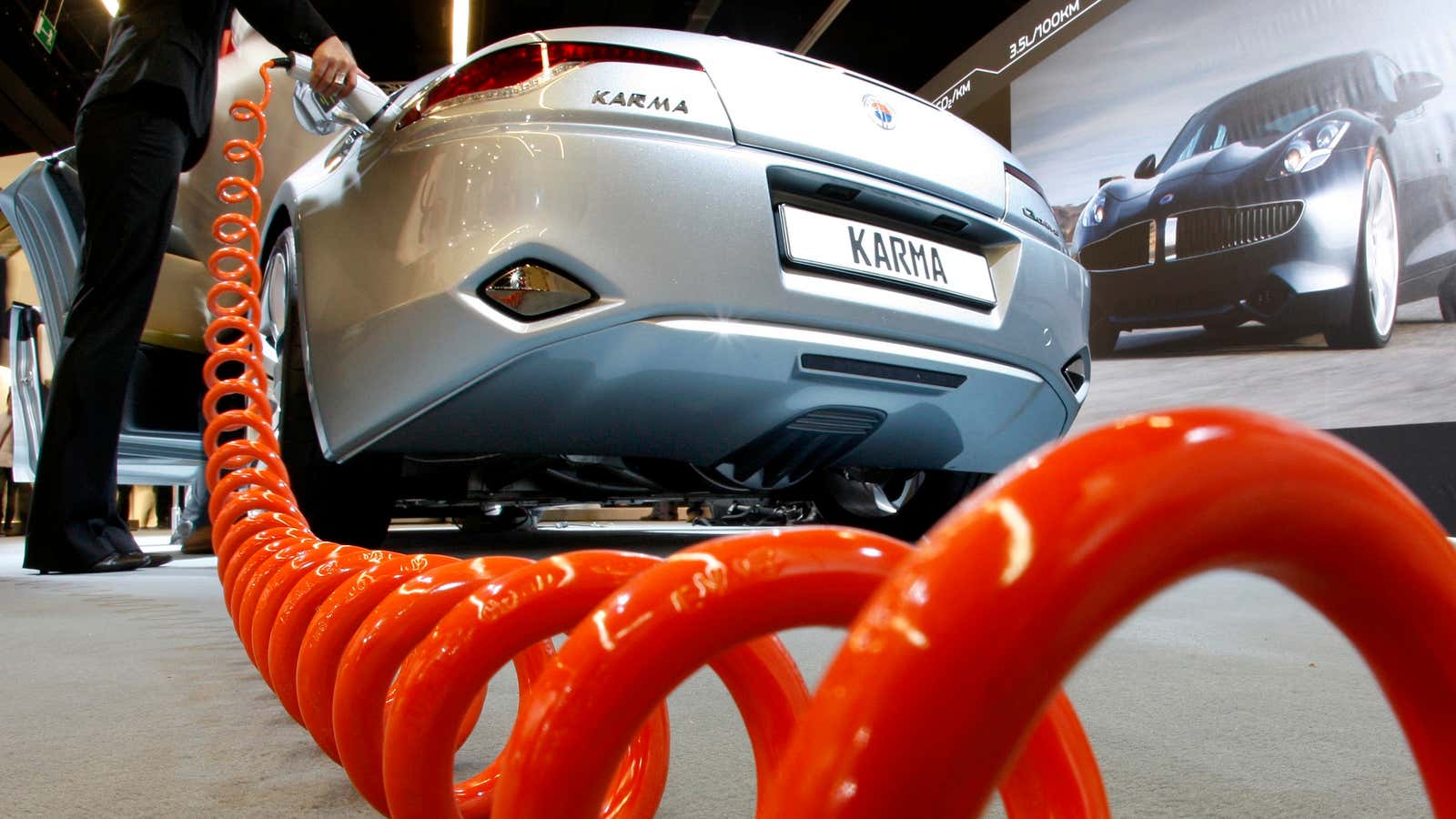China’s appetite for failing American green-tech firms may seem insatiable, as we’ve reported before—but it’s not undiscriminating. Reuters today reports that China’s Zhejiang Geely Holding Group has shelved its bid for Fisker Automotive, the troubled California startup that makes the Karma, a $108,000 plug-in hybrid electric sports sedan once seen as a rival for Tesla Motors’ all-electric Model S.
Citing unidentified sources, Reuters said executives at Geely, which owns Volvo, pulled out of the bidding because they “deemed the deal too risky.” That reportedly leaves another Chinese automotive company, Dongfeng Motor Group, as the sole bidder.
The move comes days after Fisker founder Henrik Fisker resigned as executive chairman.
In an email, Fisker spokesman Roger Ormisher told Quartz, ”We are talking to multiple partners and cannot comment on individual negotiations due to the confidential nature of all the discussions.”
Over the past year China has been buying US companies on the cheap that had raised billions of dollars in venture capital and government support but were out-maneuvered by US and Chinese competitors. Last year, for instance, Chinese energy conglomerate Hanergy acquired Silicon Valley thin-film solar startup MiaSolé for $30 million after US investors had poured a billion dollars into the company. And Wanxiang America picked up the assets of bankrupt battery maker A123 Systems for $257 million at an auction late last year. A123 supplied electric batteries to—you guessed it—Fisker.
Fisker had raised more than $1 billion from investors and was the recipient of a $529 million federal loan guarantee to build the Atlantic, its next, less expensive model, at a defunct General Motors factory in Delaware. The government suspended the loan after Fisker had drawn down $192 million but failed to meet performance milestones. The bids from Geely and Dongfeng were said to be between $200 million and $300 million.
The company’s flagship Karma sedan, meanwhile, suffered from battery software glitches and Consumer Reports last year gave the car a failing grade. “The Karma falls short with: poor dash controls, limited visibility, a cramped interior, awkward access into and out of the seats, an engine that is noisy when running, long battery recharge times, and a small backseat and trunk. The Karma’s heavy, SUV-like weight affects agility and performance, and the Karma lacks the oomph you would expect.”
Motor Trend magazine, on the hand, bestowed its 2013 Car of the Year award on the Model S.
